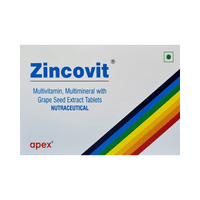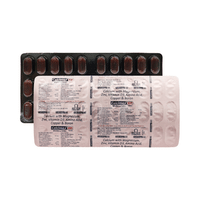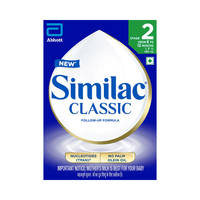food interaction for Krabeva Injection
alcohol interaction for Krabeva Injection
pregnancy interaction for Krabeva Injection
lactation interaction for Krabeva Injection
food
alcohol
pregnancy
lactation
No interaction found/established
It is not known whether it is safe to consume alcohol with Krabeva 100mg Injection. Please consult your doctor.
CONSULT YOUR DOCTOR
The safety of Krabeva 100mg Injection during pregnancy has not been established. There are no adequate and well-controlled studies in pregnant women, and animal data on reproductive toxicity are insufficient. Your doctor will weigh the benefits and any potential risks before prescribing.
CONSULT YOUR DOCTOR
Krabeva 100mg Injection may be unsafe to use during breastfeeding. Limited human data suggests that the drug may pass into the breastmilk and harm the baby. It should be used only if the expected benefit outweighs the potential risk. Please consult your doctor.
CONSULT YOUR DOCTOR
SALT INFORMATION FOR Krabeva 100mg Injection
Bevacizumab(100mg)
Krabeva injection uses
{med_name} is used in the treatment of cancer of colon and rectum, ovarian cancer, cervical cancer, kidney cancer, brain tumor and non-small cell lung cancer.
How krabeva injection works
Krabeva 100mg Injection is a anti-angiogenic medication. It works by blocking a protein called vascular endothelial growth factor (VEGF). This stops the formation of blood vessels that bring oxygen and nutrients to cancerous cells.
Common side effects of krabeva injection
Nosebleeds, Headache, High blood pressure, Inflammation of the nose, Protein in urine, Taste change, Dry skin, Hemorrhage, Increased lacrimation, Back pain, Exfoliative dermatitis
SUBSTITUTES FOR Krabeva Injection
16 Substitutes
16 Substitutes
Sorted By
 Rs. 33863pay 659% more per Injection
Rs. 33863pay 659% more per Injection Rs. 19900pay 23% more per ml of Injection
Rs. 19900pay 23% more per ml of Injection Rs. 18200pay 12% more per ml of Injection
Rs. 18200pay 12% more per ml of Injection Rs. 10800save 35% more per ml of Injection
Rs. 10800save 35% more per ml of Injection Rs. 13500save 17% more per ml of Injection
Rs. 13500save 17% more per ml of Injection
Expert advice FOR Krabeva Injection
- Bevacizumab is an effective, first-line option when used together with other medicines for certain types of cancers such as colorectal, lung, cervical, and kidney cancers.
- Bevacizumab is given as an infusion. Your doctor or nurse will monitor you for signs of an infusion reaction such as high blood pressure and trouble breathing.
- It can lower your wound healing ability. Inform your doctor that you are taking this medication before undergoing any surgical procedure.
- It can increase the risk of bleeding. Inform your doctor if you notice any unusual bleeding or bleeding that doesn't stop easily.
- Your doctor may regularly check your blood pressure and levels of protein in your urine while you are on Bevacizumab.
Frequently asked questions FOR Krabeva 100mg Injection
Bevacizumab
Q. What kinds of cancer can Krabeva 100mg Injection be used for ?
Krabeva 100mg Injection is approved for the treatment of cancer of the colon or rectum that has spread to other parts of the body. It must be given along with chemotherapy. Other types of cancers that it helps with includes certain types of lung cancer, kidney cancer, ovarian cancer, cervical cancer, and glioblastoma (a type of brain tumor).
Q. How is Krabeva 100mg Injection given?
Krabeva 100mg Injection is given as an infusion. That means you get it through a small needle in your vein or through a port, which is a device placed under your skin. Your doctor will decide your dose and duration and will monitor you for signs of an infusion reaction.
Q. How long can I take Krabeva 100mg Injection for?
You keep taking Krabeva 100mg Injection as long as your disease is controlled and your side effects are manageable. Your doctor will determine whether you should stop taking Krabeva 100mg Injection. If your cancer progresses during this initial treatment, talk to your doctor if a different chemotherapy may be an option.






















